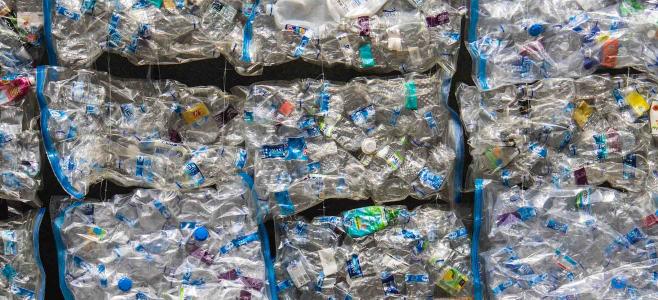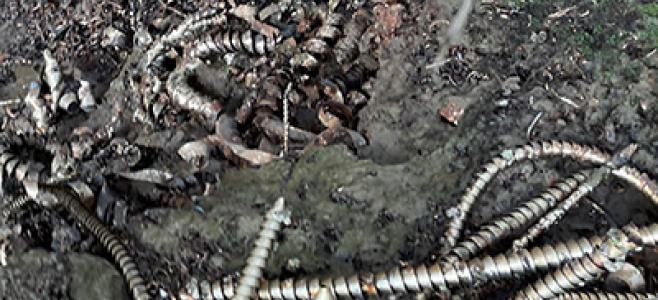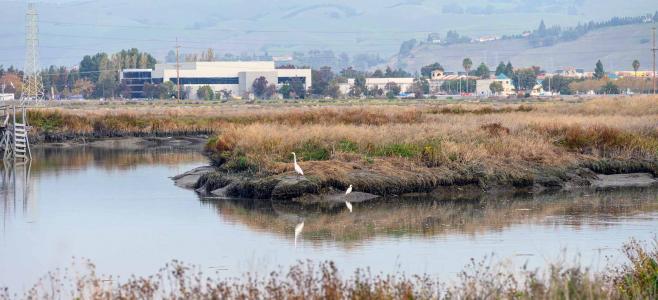Baykeeper is keeping up the pressure to block Valero Energy Corporation’s plan to enlarge the train yard at its Benicia refinery.
In February, the Benicia Planning Commission unanimously voted against Valero’s crude oil train project. Valero appealed to the Benicia City Council, which is holding heavily-attended hearings this month. Baykeeper recently joined with 18 other environmental and community groups in sending a letter to Benicia leaders. We’re making a strong legal case for why the city council must reject Valero’s plan for tank cars full of crude oil in the city of Benicia and near the Bay shore.
If the Valero project goes forward, two 50-car trains per day would carry dirty and explosive crude oil on tracks beside Suisun Bay, a San Francisco Bay inlet and important wildlife habitat area. Oil spilled along Suisun Bay's shore could quickly spread throughout San Francisco Bay.
Yet the project planners greatly underestimate the risk of fires, explosions, and oil spills as a result in the increase in shipping crude oil to the facility by rail.
The proposed expansion of the Valero refinery train yard, officially known as the Valero Benicia Crude-by-Rail Project, is part of a nationwide oil industry push to use trains to move more crude oil across the US. The shipment of crude oil by rail increased by 4,000% between 2008 and 2014, mostly from sources such as the Bakken oil shale in North Dakota, and Alberta tar sands in Canada.
This rapid expansion of crude-by-rail has brought significant environmental and public health risks. Bakken shale oil is volatile and explosion-prone. Tar sands oil is dirty. Both types of oil are being shipped over deteriorating, unsafe railroad infrastructure and bridges. Often, the oil is shipped in tank cars not designed for explosive substances. The result has been an increase in derailments and harm to communities and waterways from oil spills, fires, and explosions.
In 2015, Baykeeper pointed out that the revised environmental review documents for the Valero project greatly underestimate these risks. The documents claim that the most advanced tank cars, train technology, and emergency response requirements will be in place. However, the railroad industry itself has been fighting to stop these requirements.
Suisun Bay is a nursery for many species of fish, and an important stop for birds migrating along the Pacific Flyway. An oil spill there would be a major threat to Bay wildlife.
But the environmental impact documents don’t propose any mitigation of environmental harm the project could cause. The documents are based on the incorrect assumption that federal railroad law releases Benicia and Valero from any responsibility for mitigation.
Our partners in opposing the project include the Natural Resources Defense Council, Communities for a Better Environment, Center for Biological Diversity, Sierra Club, and a number of local citizens groups.
Baykeeper will keep working to oppose the expansion of the shipment of crude oil through the Bay Area, and to ensure that San Francisco Bay has the best possible protections from oil spills.


